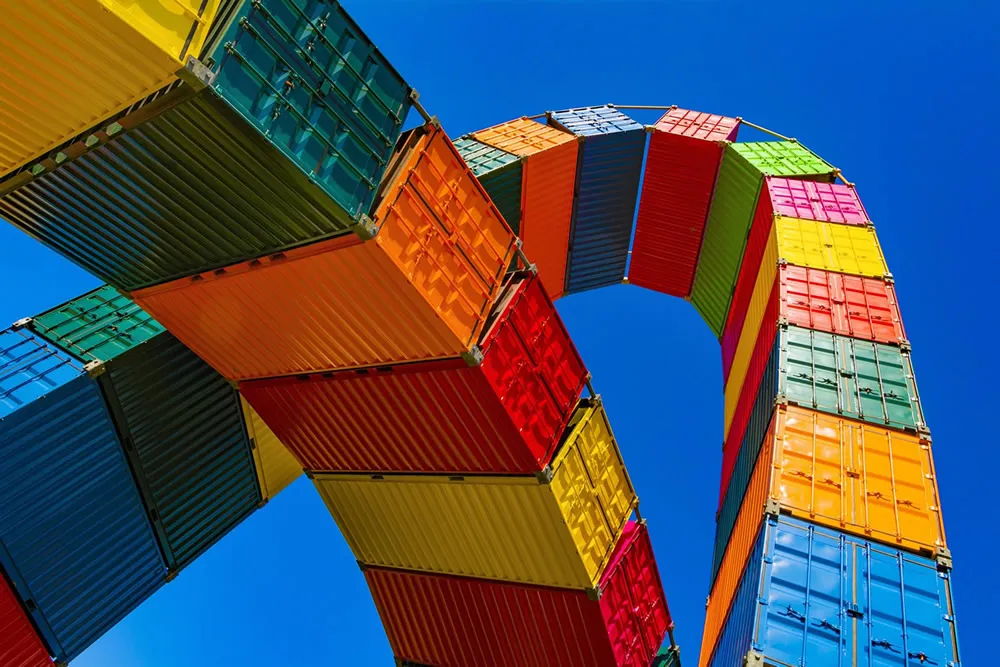Hey, friends! In the vast world of commercial trade, a form of trade is quietly emerging in Wuhan, namely plastic bag re-export trade. You might be curious, what are the intricacies behind the re-export trade of these seemingly ordinary plastic bags? Today, let's delve into Wuhan's plastic bag re-export trade together.
I. Current Situation of Wuhan Plastic Bag Re-export Trade

Wuhan, as an important city in the central region, boasts convenient transportation and a strong business atmosphere. In such an environment, the re-export trade of plastic bags has also gradually developed. Currently, Wuhan's plastic bag re-export trade is mainly concentrated in some specific commercial and trade areas, where numerous merchants engaged in this industry gather. They procure plastic bags of different specifications and qualities through various channels and then re-export them to other countries and regions.
It is understood that the sources of these plastic bags are relatively wide, some are from local plastic product manufacturers, and some are procured from other regions in China. The destinations for re-export are also diverse, covering many countries and regions in Asia, Africa, South America, and so on. The quality requirements for plastic bags vary, and merchants need to conduct precise procurement and sales according to different market demands.
II. Re-export Trade Process and Key Points
For Wuhan's plastic bag re-export trade, the process also has certain specifications and key points. First, the procurement stage is crucial. Merchants need to select plastic bag products that meet quality standards and are reasonably priced. This requires them to have an in-depth understanding of various plastic bags in the market and to be able to distinguish the advantages and disadvantages of different materials and craftsmanship.
- For example, one needs to be clear about the difference between ordinary polyethylene plastic bags and biodegradable plastic bags, and their popularity in different markets.
Secondly, in terms of logistics and transportation, it is necessary to ensure that plastic bags can reach the re-export destination safely and promptly. This involves the reasonableness of packaging and the choice of transportation methods. Often, choosing a suitable freight forwarding company can make the entire transportation process smoother. Finally, in the sales stage, it is necessary to accurately grasp the demand and price trends of the target market, formulate reasonable sales strategies, and achieve profit maximization.
III. Challenges and Opportunities Faced
The plastic bag re-export trade in Wuhan is not smooth sailing during its development and faces many challenges. On the one hand, international market competition is increasingly fierce. Similar products from other countries and regions are also competing for market share, which requires Wuhan merchants to continuously improve product quality and service levels to stand out. On the other hand, increasingly stringent environmental requirements also bring certain pressure to the plastic bag re-export trade. More and more countries are restricting or banning the import of ordinary plastic bags, which prompts merchants to pay more attention to the promotion and sales of environmentally friendly products such as biodegradable plastic bags.
However, challenges and opportunities often go hand in hand. With the development of the global economy, the demand for plastic products in more and more countries and regions still exists, especially in some developing countries where the market potential is huge. Moreover, Wuhan has unique advantages in terms of geographical location and logistics and transportation. As long as opportunities are seized and challenges are dealt with properly, Wuhan's plastic bag re-export trade still has broad development space.
IV. The Role of Zhongmaoda
In the field of plastic bag re-export trade in Wuhan, Zhongmaoda plays an important role. With its rich industry experience and professional team, Zhongmaoda provides a series of services for many merchants engaged in plastic bag re-export trade. For example, in the procurement stage, Zhongmaoda can leverage its extensive supplier resources to help merchants find plastic bag products with superior quality and favorable prices. In terms of logistics and transportation, Zhongmaoda also has mature logistics solutions, which can ensure that plastic bags arrive at their destinations on time and safely. In addition, Zhongmaoda provides merchants with support in market analysis and sales strategy formulation, helping merchants achieve better results in fierce market competition.
Conclusion: Looking Ahead
Wuhan's plastic bag re-export trade has its own development history and characteristics. Although it faces some challenges, it also has many opportunities. By continuously optimizing processes, improving product quality, and paying attention to environmental requirements, it is believed that Wuhan's plastic bag re-export trade can achieve better development in the future. And enterprises like Zhongmaoda will continue to play an important role in promoting the progress of the entire industry. So, dear readers, what are your views on Wuhan's plastic bag re-export trade? Feel free to leave a message in the comment section to discuss!

Recent Comments (0) 0
Leave a Reply